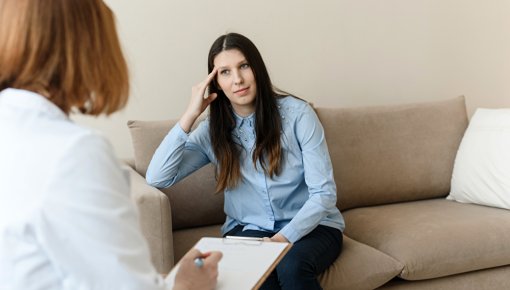Managing endometriosis symptoms

Many women find that treatment with medication or surgery doesn’t relieve their endometriosis symptoms enough. Then they can try out other things, like a pain management program or psychological support. Diet and exercise can make a difference, too.
The main treatments for endometriosis-related pain are medication or surgery. But these aren’t an option for some women – and they don’t always help enough. Many women would like to actively do something about their symptoms themselves, too.
They can then try out other forms of treatment to help relieve the pain. These include psychological support, exercise programs, physical therapy (physiotherapy) and a change in diet. But there’s a lack of research on most of these approaches, or no evidence that they help. In Germany, many of them aren’t paid for by public health insurers.
